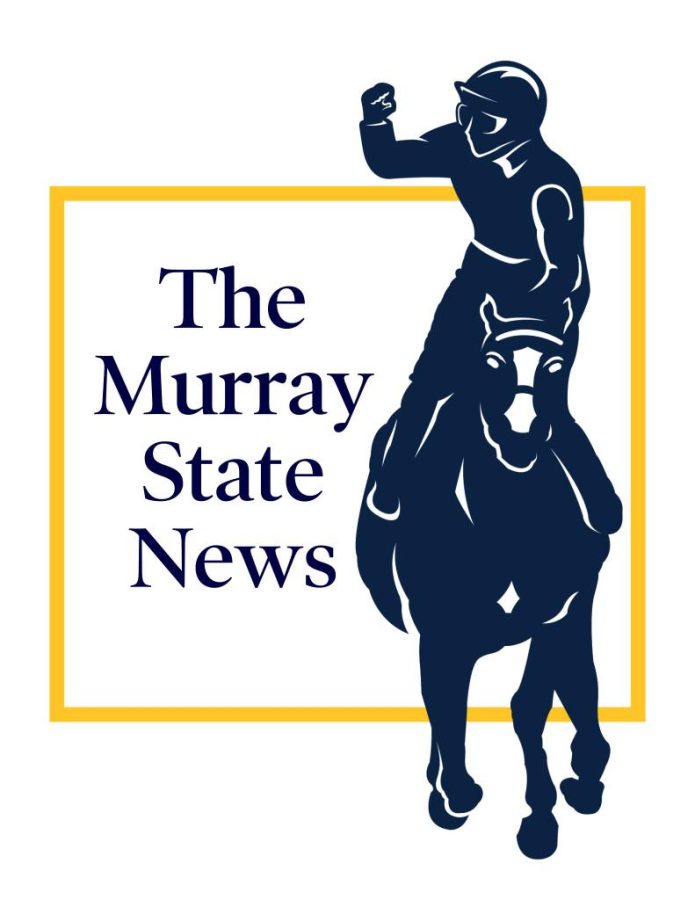Story by Matthew Parks, Staff writer
The first presidential debate took place Monday night as Murray State students watched in a showing hosted by the Political Science and Sociology Department.
Democrat candidate Hillary Clinton and Republican candidate Donald Trump squared off against each other in their first face-to-face encounter this election cycle, and the Barkley Room in the Curris Center was near capacity with students and faculty ready to watch.
The event in the Curris Center was held and analyzed by assistant professors of political science Drew Seib and Paul Foote. The debate between the two candidates was held at Hofstra University in Hempstead, New York, and moderated by Lester Holt, NBC news anchor and registered Republican.
Although the presidential debates do not have a point system and therefore do not declare an official “winner,” a multitude of polls will come out over the next few weeks declaring who “won” based on collected opinion samplings.
“Be leery of those polls,” Seib said. “It’s hard to get a good random sampling so be very leery of those initial polls and how they evaluate this election.”
The debate had three major sections for the candidates to discuss: Achieving Prosperity, America’s Direction and Securing America.
ACHIEVING PROSPERITY
In the first section, “Achieving Prosperity,” the candidates discussed America’s economic status and tax plans along with the state of employment in the United States.
“The central question is what kind of country we want to be and what kind of future we want to build together,” Clinton said.
Trump spoke about his tax plan, which includes reducing taxes on corporations and the wealthy, a type of trickle-down economics that Clinton referred to in the debate as “Trumped-up” economics.
“Companies will come; they will build; they will expand,” Trump said.
Clinton said she still believes that tax breaks for the middle class and increases on corporations and the wealthy will be an economic boon.
“We need to have a tax system that rewards work and not just transactions,” Clinton said.
The Tax Foundation, a nonpartisan think tank that collects data and publishes research studies on federal and state tax policies, has said Trump’s plan will “balloon” the national deficit and Clinton’s plan “not so much.”
AMERICA’S DIRECTION
Candidates were first asked to discuss race relations in the country and how they would heal the racial gap.
Clinton said she sympathized with the state of race relations and said she has plans to make police more accountable and eliminate private prisons at the state level.
“We have to address the systemic racism in our criminal justice system,” Clinton said.
Trump said it boils down to two words: law and order. He said U.S. metropolis areas like Chicago are more dangerous than some war zones in Iraq, and they pose great threat to young African-Americans living there.
“African-Americans are living in hell,” Trump said.
He also said he has received an endorsement from the Fraternal Order of the Police and would work closely with them.
SECURING AMERICA
The candidates debated on America’s national security, specifically the nuclear warfare crisis and NATO.
Trump said NATO is an alliance we have to rethink. He said the alliance is carried by the United States and we get nothing out of “policing foreign countries.”
Clinton said she believes that alliance is still massively important and recalled NATO’s mobilization after the 9/11 attacks and their continued assistance in the rooting out of terror organizations across the globes. She said she believes that maintaining those alliances is crucial.
“Words matter,” Clinton said. “Words matter when you run for president, and they really matter when you are president. It is essential that America’s word be good.”
After the debate concluded, Foote and Seib took questions from the audience.
Seib said over the next few weeks – until the second debate – the media will pick apart the “little things” in the debate that most might not even have noticed during the first showing.
He also said that regardless of the results, there is still plenty of time for things to swing.
“Ultimately, the media will say who wins and who loses,” Seib said.
Foote said the debate reminded him of the debate between George Bush and Al Gore. He said Trump’s demeanor reminded him of Gore’s uptight demeanor that cost him during his own debate.
“He really wasn’t as prepared as Hillary Clinton,” Foote said. “He lacked substance and was not able to respond intelligently or at all to what was said.”
Foote said he doesn’t believe Trump convinced the public that he is ready to take on the role of commander in chief, one of the primary objectives he needed to accomplish during the first debate.
Seib said he expects to see Trump fall behind slightly in the polls. However, he said he believes Kentucky will still vote Republican on the presidential level regardless of this debate or any of the upcoming ones.
Seib said he thinks Trump’s biggest mistake during the debate was his attacks on the moderator and insisting well-documented facts were untrue, rather than simply ignoring them and moving on.
Foote said around 10-13 percent of voters are undecided, so the debate will affect them the most.
“Debates don’t win the presidency, but they do influence the outcome,” Foote said.




























































































